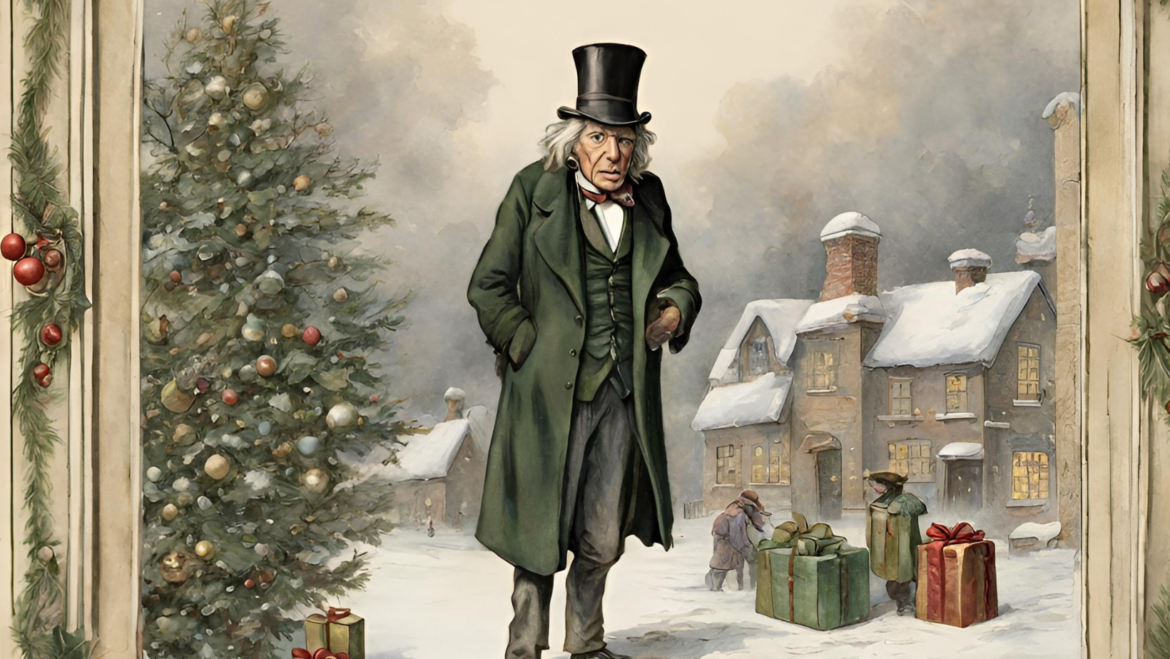Christmas 2023 is right around the corner as are the demands of the season. I am reminded of the magnificent play by Charles Dickens, A Christmas Carol. The main character is a wealthy, older man named Ebenezer Scrooge. He was a neglected child with a cruel father who grew to hate everyone around him. Scrooge decides to be stingy with his money and harsh towards others. He is visited by three ghosts who showed him how his past and present decisions could lead to a very, unfortunate outcome. He made a conscious decision to turn his life around to have a better future. We, too, go through hard experiences affecting how we see ourselves and how we treat others. Here’s what we can learn from Scrooge’s character:
Slow down. In today’s hustle and bustle, opportunities to fill your schedule are endless, but that doesn’t mean you have to tack on more. Scrooge spent his days counting his money and working ceaselessly out of fear rather than purpose. Discover your own motives to determine if it will be worthwhile to avoid getting stuck like Scrooge. Making a decision this year doesn’t make it necessary for the next. We experience so much pressure that it can make Christmas and New Year’s unenjoyable. Look at your calendar for the next couple of months and plan times to relax. Maybe you have a screen-free weekend to reduce stress. Or perhaps, one kid-free evening for yourself. As a parent if you don’t plan it, the time will never come. How might “doing” define you more than “being”?
Relinquish control. I believe that because Scrooge had many difficult trials growing up, he turned to money and became greedy. This was his attempt to control things he could not. The holiday season comes with many difficult situations like dealing with grief, endless urgent tasks, busy schedules, and of course, family drama! Personally, I believe I can handle everything alone until I realize I can’t do it by myself (usually when it’s too late!). Overwhelm can creep up without us even knowing. If we are not careful, little by little we take on small projects, which become enormous burdens. We push through to please people and blindly follow traditions because we think we are capable of doing it all. But the proof is in the figgy pudding when we get sick, irritable, or unpleasant from the many things we decided to carry on our backs. Our attitudes may become unbearable because there is a disconnect between our mind and bodies. Oftentimes we try to control because we want to avoid uneasy feelings. We ignore the choked-back tears that would bring us comfort. We dismiss others’ help that would provide an opportunity for connection and doing things a bit different this year. When we grasp for control, we don’t have room to hold much else. Become aware of the emotions that occur when hard circumstances arrive. Instead of attempting to alter a situation to minimize the discomfort, examine how experiencing disappointment and sadness is a normal and necessary part of life. I invite you to exchange control for peace and joy by accepting life’s unexpected twists and turns.
Forgive. It was not life’s circumstances that drove Scrooge to become resentful of others, instead it was how he chose to respond. He held onto anger and sadness without addressing it. When we have been wronged, we want the other party to make up for it. But holding onto hurt without resolution can create more tension, resentment and even health issues. Forgiveness is the ability to: acknowledge people are going to hurt you (like you do others), to release the desire to know why they hurt you, and to initiate your healing process (by creating an atmosphere where you value yourself and others). Forgiveness does NOT mean you cast your boundaries aside or allow yourself to be mistreated repeatedly. Anger and frustration indicate that one of your values has not been honored. Discover what this value is and how it can be honored. What can the other party do in the future to make it right (if applicable)? If they do not honor it, how can you value it yourself even when others do not? Having a solid community can help you view a situation more realistically. Forgiveness can look different depending on the severity of the offense. If you are struggling to forgive, respect your values or even forgive yourself, consider finding a therapist who can help guide you through deep-seeded wounds that have yet to be healed.
This Christmas season, take some time to reflect on how implementing these tips can help you care for yourself and those around you. Consider these three principles as a visit from the Ghosts of Christmas prompting you to a more fulfilled life.

